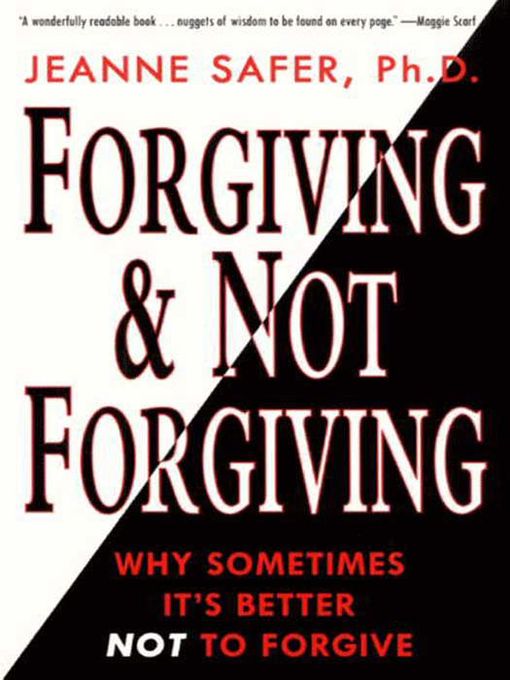
Forgiving and Not Forgiving
Why Sometimes It's Better Not to Forgive
کتاب های مرتبط
- اطلاعات
- نقد و بررسی
- دیدگاه کاربران
نقد و بررسی

August 2, 1999
In a stimulating book that seeks to challenge the common wisdom, psychotherapist Safer (Beyond Motherhood: Choosing a Life Without Children) examines our Judeo-Christian concept of forgiveness. Though positioned for general readers, the tone and style of this book are more thoughtful than prescriptive; it will most likely find its market among mental health professionals and others with the background to absorb Safer's sophisticated arguments. The "intimate betrayals" involve hurtful behavior by family, lovers and friends, and exclude actions by strangers. Though marital infidelity is included, the majority of examples are of breaches between parents and children, some of which are quite disturbing. Forgiveness, Safer says, is not a "natural" reaction to damaging behaviors, though it's a cornerstone of our society. Drawing on her 25-year practice, she describes traumatic acts of family brutality, incest, alcoholism and compulsive gambling. She analyzes how the individuals involved have resolved their betrayals, evaluating each approach in relation to religious thought, as explained by a Jewish Reform rabbi and a Catholic priest. In essence, Safer is suggesting that a reasoned process for coming to terms with wrongdoing is more appropriate than the kind of blanket forgiveness that's prevalent today. The end result may not be forgiveness, but the value, she says, is in thorough examination and increased self-knowledge. The required steps in the process are "re-engaging" (with the betrayer, the act, the ensuing emotions and reactions) and "recognizing" the significance of the ordeal, which allow "reinterpretation" of the motives of both parties. Agent, Jennifer Rudolph Walsh of the Virginia Barber Literary Agency.

July 1, 1999
Safer, a therapist with more than 25 years of experience, claims that sometimes the only way to achieve inner peace is by going against the prevalent Judeo-Christian belief that forgiving your enemies is unequivocally the right thing to do. She distinguishes between true and false forgiveness and, rather than accepting that dichotomy, creates a new category she calls thoughtful unforgiveness. She points out that if you lie to yourself about having forgiven someone when you really haven't, you're going to cause yourself far more psychic pain than if you acknowledge that you are not yet ready to forgive. While this is not a particularly amazing bit of news, libraries that have collected some of the recent titles lauding forgiveness as a panacea may wish to add this book as an alternative viewpoint.--Pamela A. Matthews, Gettysburg Coll. Lib., PA
Copyright 1999 Library Journal, LLC Used with permission.

























دیدگاه کاربران